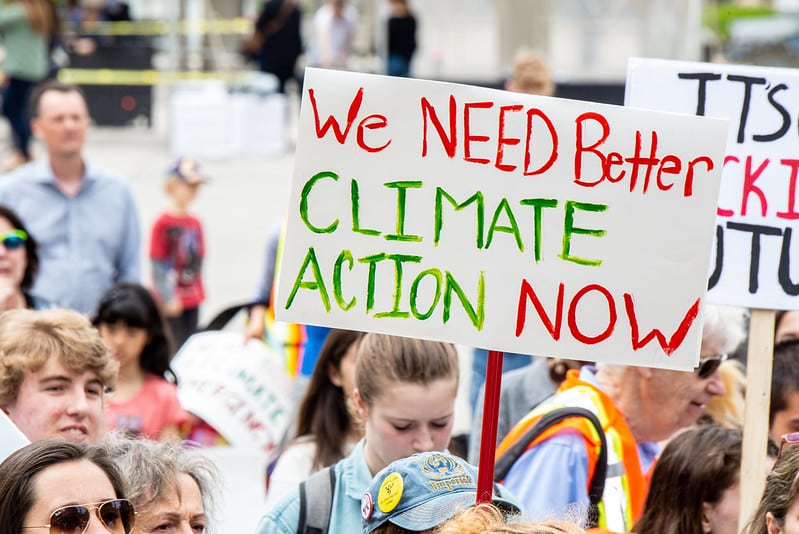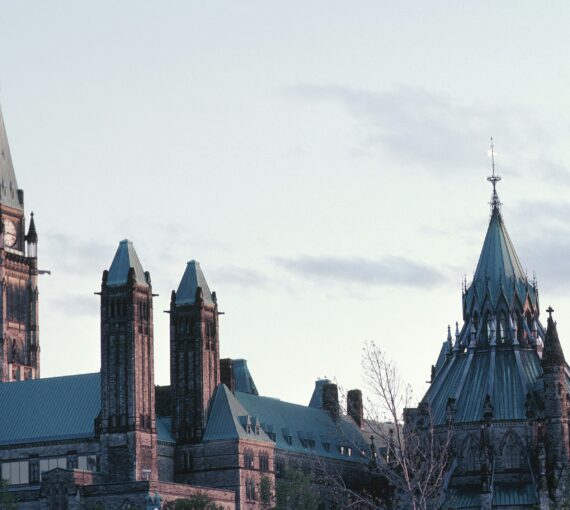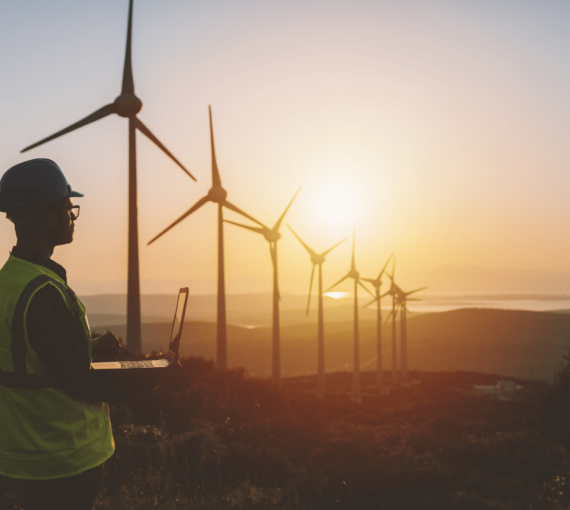
Far more people care about climate disruption than those who refuse to budge, and our numbers are growing! (Photo: Michael Swan via Flickr)
Most people understand that the climate crisis is real, and they want their leaders to do something about it. That means politicians who deny the problem or refuse to address it are not just putting people and the planet at great risk, they’re also going against the wishes of those they were elected to serve.
A recent global survey found that 80 per cent of people want their country to do more about climate change and 72 per cent want their country to shift quickly from fossil fuels to renewable energy — including 90 per cent in fossil fuel–producing countries!
The Peoples’ Climate Vote 2024 — the “world’s largest standalone survey on climate change” — conducted by the United Nations Development Programme and the University of Oxford, asked people in 77 countries, representing 87 per cent of the world’s population, for their views on climate change.
It also found 78 per cent want more protection for people most vulnerable to extreme weather and 79 per cent want wealthy countries to help poorer countries adapt to climate change impacts. Eighty-one per cent also want their countries to protect and restore nature.
Most people understand that the climate crisis is real, and they want their leaders to do something about it.
Many polls have yielded similar results, including in the United States and Canada. A recent Gallup poll found about two-thirds of people in the U.S. are concerned about climate change. Even in “conservative” Florida, a survey “found that 90 percent of respondents believe climate change is happening.” The Florida Atlantic University poll found around 70 per cent support state and federal action to address climate change.
A poll conducted last year found 72 per of people in Canada are concerned about climate change. The number was higher in provinces such as Quebec, at 84 per cent, but lower in Alberta, at 55 per cent.
There are good reasons for public support, beyond mitigating a crisis that threatens our very survival. Shifting to renewable energy reduces pollution and related health issues, including premature death. It reduces monopoly control over energy, as well as the price volatility and rising costs associated with gas, oil and coal power. It creates employment and helps the economy. Done right, it can even reduce inequalities.
So, why aren’t we doing more? Why are so many politicians still prioritizing the polluting fossil fuel industry’s interests over climate action and most people’s wishes?
Fossil fuel companies donate considerable amounts of money to subservient politicians and political causes.
One factor is that many people, including politicians, underestimate public support for climate action. A study in Nature Communications found 80 to 90 per cent of people in the U.S. thought that just 37 to 43 per cent of the population support climate policies, when the actual number is 66 to 80 per cent.
Other factors include greed, ideology and fossil fuel industry mis- and disinformation. Fossil fuel companies donate considerable amounts of money to subservient politicians and political causes.
As for ideology, it’s difficult to figure out why so many “conservatives” have shifted to anti-environmental positions. Political leaders, including former U.K. Prime Minister Margaret Thatcher, U.S. President George H.W. Bush and Canadian Prime Minister Brian Mulroney, championed climate and other environmental policies in the late 1980s and early 1990s. But the fossil fuel industry, in covering up, denying or downplaying the growing evidence for human-caused climate disruption — some from its own scientists — shifted the political conversation.
Most also understand that the problem is not a lack of solutions; it’s a lack of political will.
When politicians must seek re-election every few years, digging up and selling off “resources” is an easy, albeit short-term and short-sighted, way to boost the economy — especially under economic systems that reward profit at any cost to human health and the environment. Wastefully burning massive amounts of finite stores of gas, oil and coal increases gross domestic product, or GDP, an outdated way to measure progress.
Even if many people don’t fully understand the science behind global heating and its increasingly terrifying impacts, most can see that something is wrong and that we must do all we can to overcome the crisis. Most also understand that the problem is not a lack of solutions; it’s a lack of political will.
Far more people care about climate disruption than those who refuse to budge, and our numbers are growing! The fossil fuel industry has had its day. It’s time to move on. People have the power. Let’s use it!



